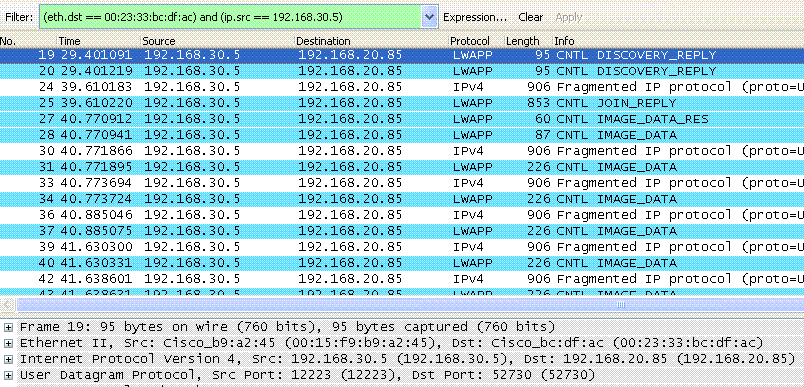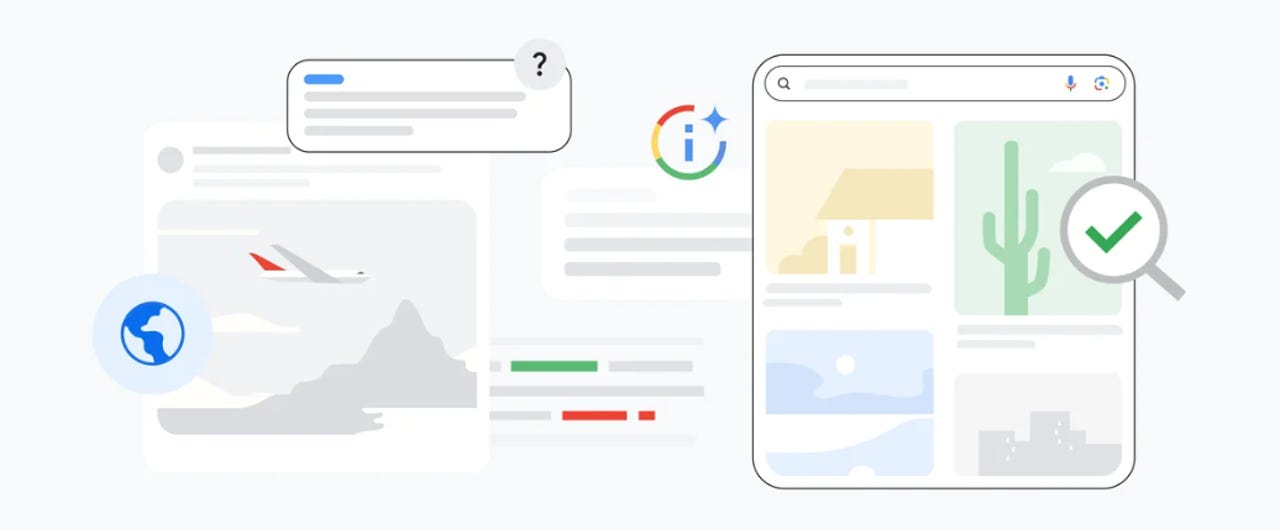































 Google
Google AI text-to-image generators have the capability to produce some incredibly realistic images, like the viral image of Pope Francis wearing a white puffer jacket that nearly tricked the whole internet. Therefore, this technology poses a high risk of spreading misinformation -- but Google's new tools are here to help.
At Google I/O, the company announced an "About this image" feature in Search that would help users discern whether an image is real by providing them with crucial image information.
Also:This new camera has Content Credentials built-in as a response to AI-generated images
On Wednesday, Google finally unveiled the "About this image" feature, which will provide users with the image's history, how other sites use and describe the image, and most importantly, the image's metadata at the tap of a button.
The metadata of an image is valuable because it contains information where you can find details that the image creator or publishers have added to the image themselves, assuring they get proper credit for their work.
Also, many AI image generators, such as Google's or Adobe's, include in the metadata that the image was generated by AI. Therefore, Google's easy access to the metadata information allows users to potentially access a clear marker informing them the photo was fake.
Also: Google's new AI-powered tool helps users learn English right in Search
To access the "About this image" tool, all users will have to do is click on the three dots that appear next to an image in Google Images results or click "more about this page" on the "About this result" tool in search results.
Google also introduced the "Fact Check Explorer" tool, which gives journalists a platform to easily learn more information about an image or topic.
Using the tool, all a user needs to do is drop an image or URL of what they are trying to fact-check. Then, the tool will see if the image has been featured anywhere in an existing fact-check and present that information.
According to Google, since the feature was released, over 70% of beta users reported that the new image features helped reduce their investigation time.
Also: Mid-career professionals, watch out. You're the most exposed to AI
Per testers' request, Google also unveiled the beta of a FactCheck Search API that users could integrate with their own in-house fact-checking solutions.
Google isn't the only company attempting to curve the misinformation from AI-generated images. The camera manufacturer Leica launched the world's first camera to have Content Credentials built in.
That means that at the point of capture, the photo will automatically include metadata that includes details, such as who captured the image as well as when and how it was captured.
 Etiquetas calientes:
Inteligencia Artificial
innovación
Etiquetas calientes:
Inteligencia Artificial
innovación